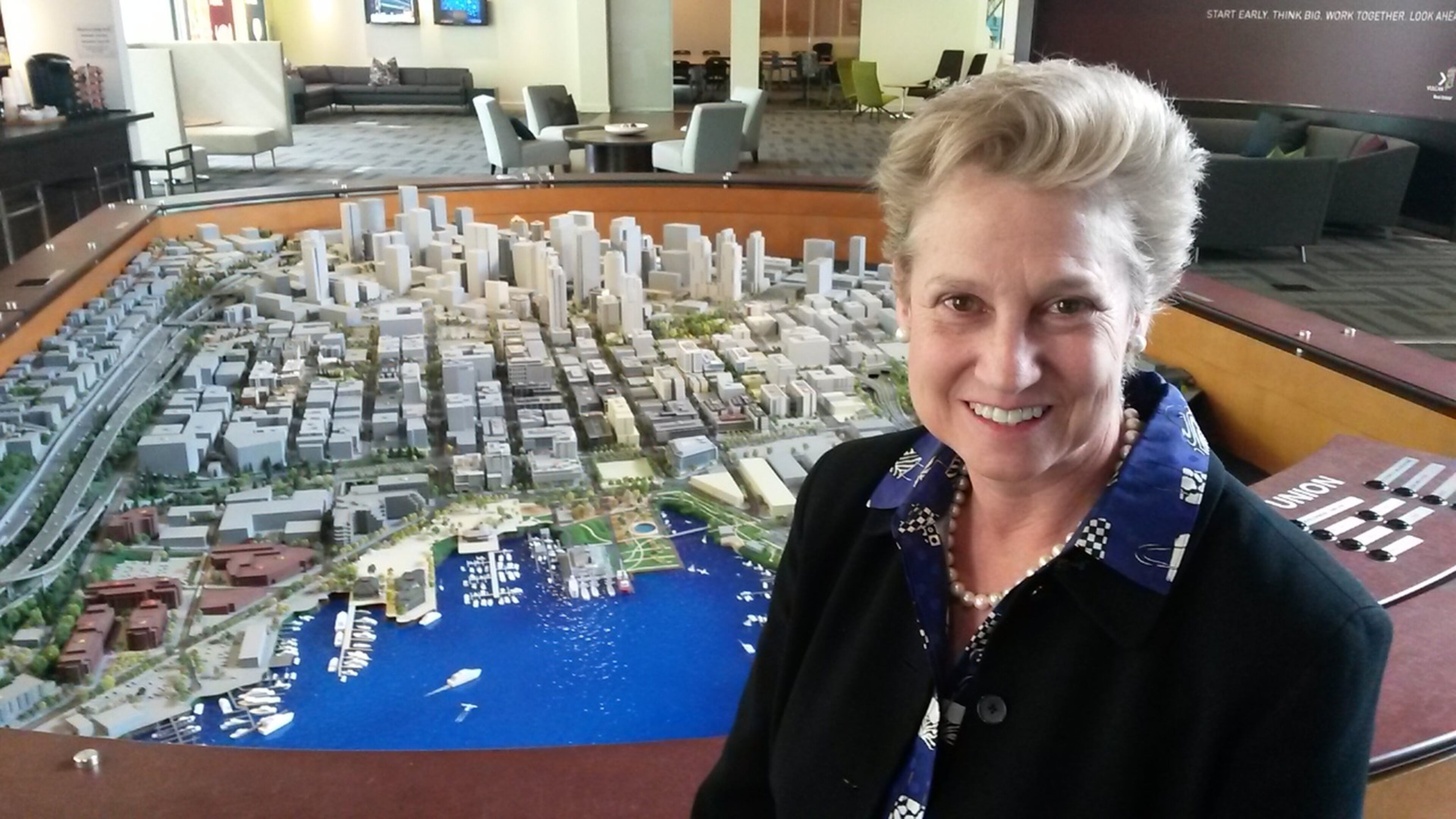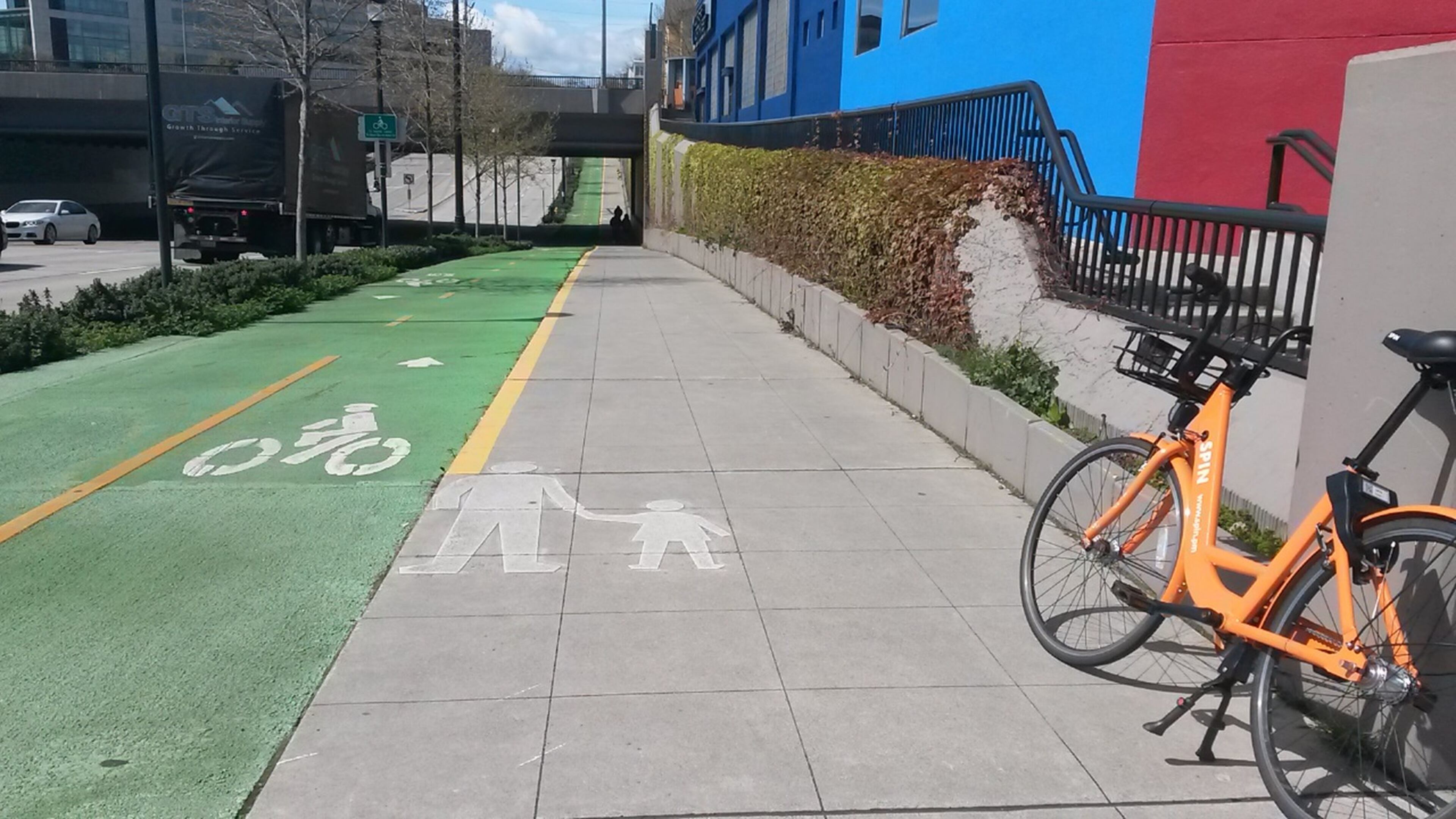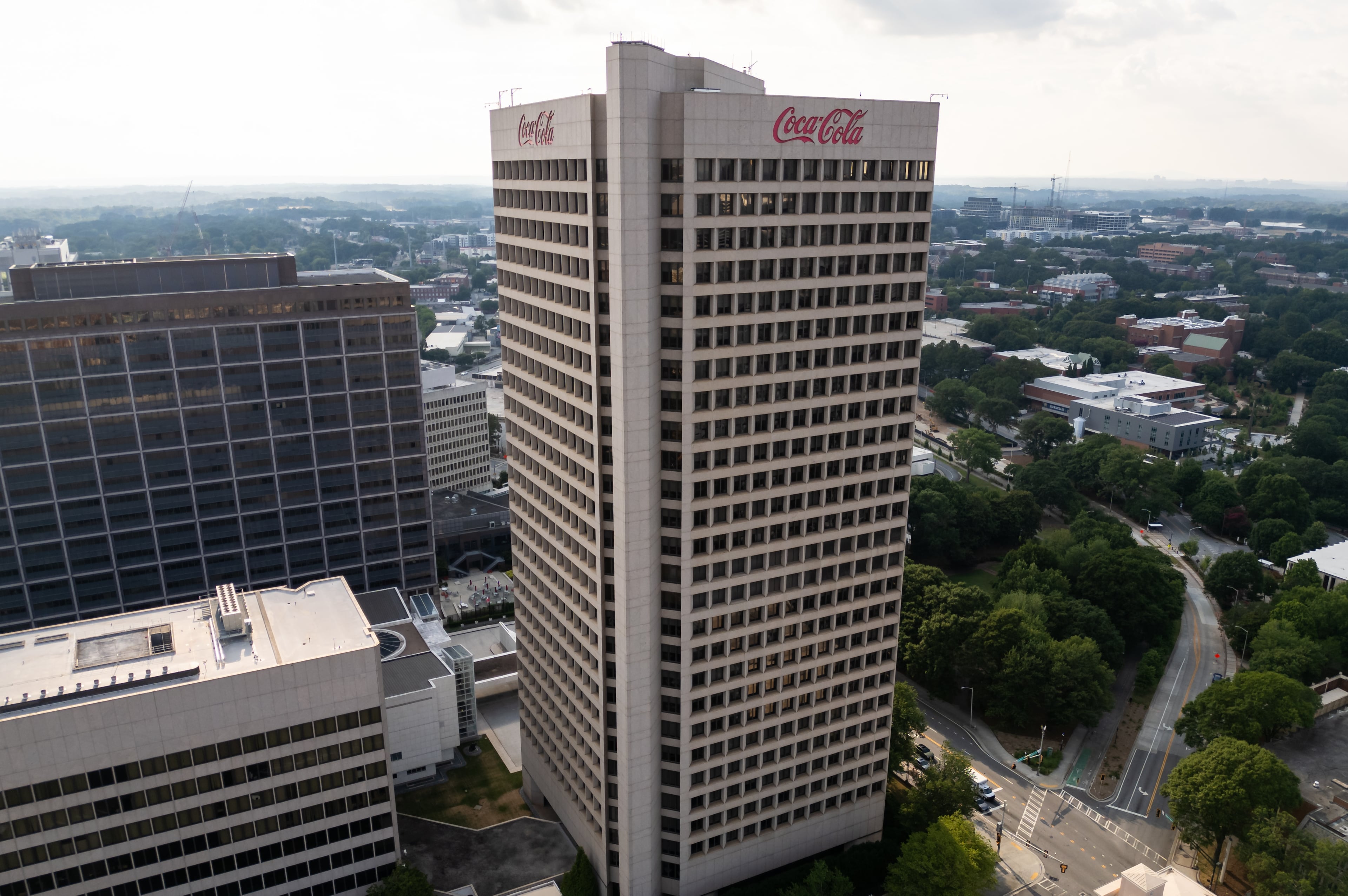How Amazon could revolutionize downtown Atlanta’s grittiest spot

Cristian Ospina told me he really likes Castleberry Hill, his cool Atlanta neighborhood, just south of the Mercedes-Benz Stadium.
But as he walks the few blocks to a MARTA station in adjacent south downtown Atlanta, he passes what I've called one of the the scraggliest, most forgotten parts of downtown, where oases of promise are surrounded by neglect.
VIDEO: Previous coverage on Amazon HQ2
Ospina’s simple advice for newcomers: Use the upper level of the Garnett Station, not the edgy lower one. Take care out on the streets. You’ll be fine. “Just keep your head on a swivel. Be aware of your surroundings.”
Welcome to what could become Amazon’s new hood.
Picture office towers filled with 50,000 highly paid tech workers (most of them guys) from around the world, pricey apartments, wide bike lanes, soaring property values, maddening traffic, new restaurants, fleets of food trucks and waves of backpack-wearing millennials.
Yet, even with all that energy and it could still feel soulless. It’s hard to create a neighborhood. Pioneers could profit beautifully. Others could be gentrified out.
Amazon can do that to a place, as I learned in its hometown, Seattle.
Atlanta is just one of 20 communities still in the running for Amazon’s second headquarters, dubbed HQ2. So things are far from certain.
And within Atlanta, several sites have been considered by the company.
But among the Atlanta areas Amazon leaders have toured, south downtown most looks like what executives saw years ago in a section of Seattle they now know well.
Both share something that Amazon fancies: the opportunity to transform a community.
Epicenter of growth
Seattle’s South Lake Union district had been a drab expanse of low-rise industrial operations, warehouses and vacant properties only lightly inhabited despite its proximity to Seattle’s core. (It was, though, more active than south downtown Atlanta.)
Now, South Lake Union is the epicenter of Seattle’s remarkable and often locally derided growth.

That transformation was fueled by many companies, but none more than Amazon. The online retailer peppered the district with most of its 45,000 (so far) Seattle employees. It built or leased dozens of buildings, though they are scattered too haphazardly to really feel like a headquarters campus.
Despite that breath-taking scale — Amazon occupies a fifth of the Class A office space in Seattle proper — the company somehow managed to do it in an understated way.
I don’t recall seeing even one HQ building with a sign outside saying “Amazon.” The company runs a fleet of white buses with tinted windows to shuttle employees to and from homes in the suburbs. I saw none with the Amazon logo.
And yet locals told me they usually could spot Amazon folks — young guys with backpacks and work badges, wearing headphones, walking while looking down at their smartphones.
Expect to see them in Atlanta, too, if Amazon picks the city for HQ2.
How it might look
I traveled to Seattle with Atlanta Journal-Constitution reporter Scott Trubey. We wanted to see what it's like to live with Amazon and to get a feel for Atlanta's chances. I particularly wanted to get hints about how a place like south downtown Atlanta might change.
My easy conclusion: Immensely.
For now, the area has some pioneering residents, small businesses, underused and abandoned buildings, panhandlers, a Greyhound bus station, jail, strip club (there's also one near Amazon's most prominent Seattle building), and The Gulch, a canyon of railroad tracks. A developer proposed nine high rises there and other proposals for south downtown have surfaced lately.
Amazon will want pedestrian and bicycle friendly places for employees to live, eat, relax and party within walking distance. Expect more restaurants and a grocery store.
Assume Amazon will bring big environmental projects. In drizzly Seattle, it uses heat generated from a data center to warm office buildings. Imagine in Atlanta a plethora of new solar panels on and around its new buildings.
Things will change in nuanced ways. Amazon’s workforce, like other tech companies, has more men than women. So, in Seattle, some Amazon buildings have more bathrooms for guys. And because Amazon allows dogs at work, landscaping outside tends to be more of the rock and pebble variety rather than plants.
Because Amazon will be planning for a massive campus from the start, it can dream a little more and bargain for extras.
It wouldn’t be crazy to see satellite university buildings beside Amazon or maybe a direct transit line to Georgia Tech along with other transit additions.
The current configuration of area streets and links to nearby interstates would need a major boost, unless you think Amazon will settle for the traffic woes visitors to Mercedes-Benz Stadium experience.
If Amazon comes, every weekday will be game day.
Ospina, the Castleberry Hill resident, predicts Amazon could bring more security, more security cameras and higher property values for condo owners like him.
A neighbor, Robert Horne, assumes some grassroots happenings, like pop-up art exhibits, might get nudged out of decaying buildings. Even so, he likes “the idea of having more of a community feel instead of empty store fronts.”
Raunderio Adams is hopeful.
“It would be like a new Atlanta,” said the 27-year-old who tackles a variety of work gigs in the area. “I’d see a lot more opportunity.”
He and a younger brother pay $850 for a two-bedroom apartment nearby. He assured me he’d find a way to handle a big jump in his rent.

Ripples of unanticipated change
South downtown has some fun shops, some interesting architecture and some needy people. But there’s still room for Amazon without directly displacing much we’d miss.
The indirect impact is another matter.
Because the lessons of Seattle suggest the impact of Amazon and other booming tech companies is far-reaching.
People in Seattle have a love-hate relationship with Amazon.
“Which hat am I wearing?” asked Mark Petrie, the CEO of Copiers Northwest, which has been headquartered in South Lake Union since before the Amazon boom. “If I’m looking at it from an investor and landowner perspective, I love it.”
The building he bought for $1.2 million in 1997 now may be worth nearly 20 times that. Where once he saw few pedestrians, he sees many.
But worsening traffic and soaring housing prices have forced him to allow employees to telecommute. And intense competition for tech talent has driven up wages.
Tai Po, who works at a local car shop, is happy with the more vibrant neighborhood.
But she can afford her one-bedroom apartment near South Lake Union only because her rent is controlled at $1,150 a month. A friend with a smaller apartment and no rent-control pays double.
“They ruined us,” her boss, shop owner Brian Burns, told me.
“Prior to Amazon, all my employees could afford to live in Seattle,” he said. Now it’s difficult to hire anyone with a family because they can’t afford to live nearby and they can’t stand the commute.
Ada Healey, who grew up in Atlanta and whose great grandmother built the Healey Building downtown, now runs a major real estate enterprise in South Lake Union for Microsoft co-founder Paul Allen.
She sees positives for any city that wins Amazon. But be ready for what it brings, she said. “If you don’t like change, it will be hard.”
Peter Steinbrueck pushed for development limitations when he was on the Seattle City Council. He told me he doesn’t believe the district has been planned out as well as it could have been.
But he’s cautious about suggestions he’s heard that Seattle is losing its soul, a complaint he heard even before Amazon boomed.
“What isn’t clear is, are we losing our soul or just changing into something else,” he said. “Cities have to change.”
Certainly south downtown Atlanta does.
Find more Kempner columns here:http://www.myajc.com/news/opinion/matt-kempner-unofficial-business/j9F7R2mOGomS5FMjfhho2O/
Check Matt on Facebook (https://www.facebook.com/mattkempnercolumnist) and Twitter (@MattKempner) or email him at mkempner@ajc.com.



